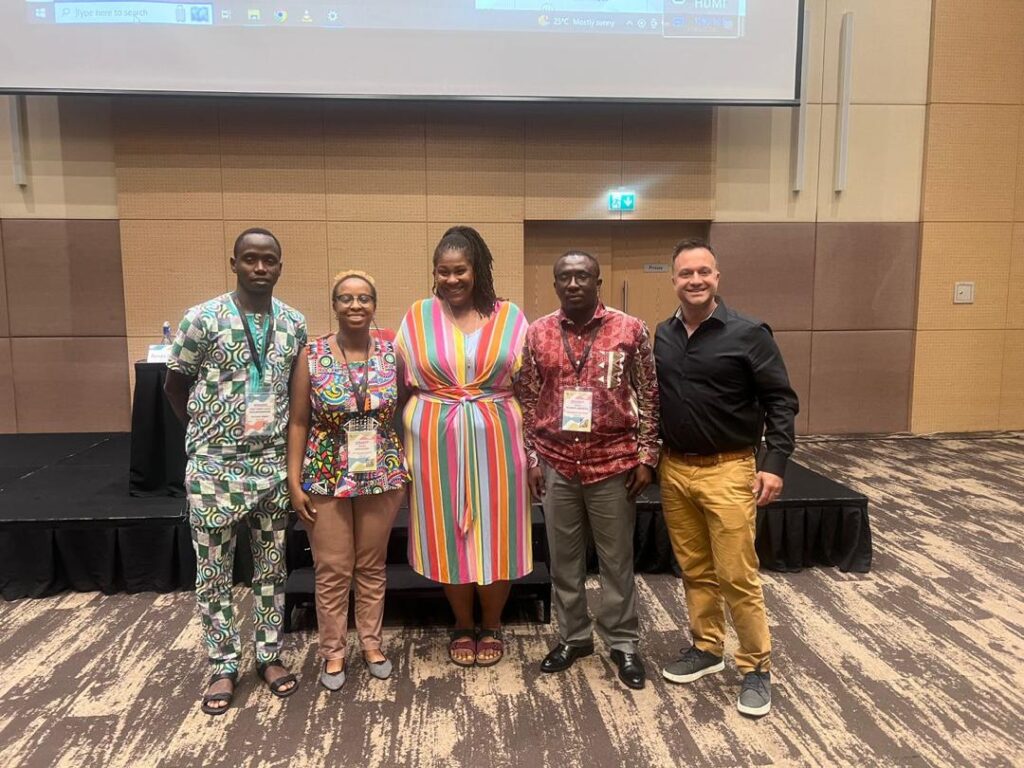In an era where data is the new gold, data practitioners’ ethical management and upskilling are paramount. On May 31, 2024, this principle was the focal point of an enlightening presentation by Dr. Henry Nunoo-Mensah, Programmes Coordinator and AI in Health Thematic Lead for the Responsible AI Lab (RAIL). Speaking at a Data Upskilling for Africans-by-Africans workshop organised by Panoply Digital in Rwanda as part of the 17th eLearning-Africa Conference, Dr. Nunoo-Mensah delivered an insightful discourse on “Data Upskilling from an Ethical Lens,” shedding light on the imperative of ethical considerations in data science and AI.

Dr. Nunoo-Mensah began by emphasising the significance of data upskilling for success and productivity in today’s data-centric world. As data increasingly drives decision-making across various sectors, the need for skilled professionals who can navigate this landscape ethically has never been more critical. He underscored that viewing data upskilling through an ethical lens is essential to ensure that individuals and organisations handle data responsibly and ethically.

Central to his presentation was on data ethics frameworks, specifically the FACETS Responsible AI framework, a data ethics model developed by RAIL in collaboration with AI research labs within the AI4D initiative, specifically CITACEL in Burkina Faso and the University of Dodoma in Tanzania. FACETS, an acronym for Fairness, Accountability, Confidentiality, Ethics, Transparency, and Safety, is designed to guide ethical practices throughout the AI innovation pipeline. The model promotes fairness by ensuring unbiased data handling and decision-making processes. It also encourages individuals and organisations to be responsible for their data practices and prioritise data safety and its societal implications. He also hinted at the Framework’s ability to promote transparency by maintaining openness and clarity in all data processes.
Dr. Nunoo-Mensah further explained that FACETS covers a comprehensive pipeline from envisioning to deployment, measuring performance, and accounting for various stages of the AI innovation process. He asserted, “The framework emphasises ethical data upskilling to reinforce trust and credibility in innovation, ensuring equity and fairness in the design process while promoting sustainable innovations by considering the societal impact.”
Concluding his presentation, Dr. Nunoo-Mensah reiterated that ethical data upskilling goes beyond merely improving technical skills. It is about fostering a culture of responsible and ethical data usage. This approach ensures that innovations are effective and aligned with societal values, promoting a trustworthy and sustainable future. Dr Nunoo-Mensah explained that the FACETS Responsible AI Framework is one of the key standards adopted by RAIL to ensure that innovations emanating from the Lab are relevant and safe for societal impact. He indicated that a badge is generated after being assessed by the framework. This badge can be displayed on every application or innovation by various stakeholders within the AI ecosystem.
The contributions of other notable speakers, including Annita Mwagiru and Yaovi Habib Lazare Houndekindo, spoke on the need for a relevant partnership to deliver demand-driven data upskilling programmes relevant to various organisations. Omeed Mosavat, from GIZ, presented an e-learning for data upskilling. The session was moderated by Ronda Zelezny-Green, Co-founder and Director at Panoply Digital, who facilitated a robust discussion on the intersection of data, ethics, and innovation.

As the dialogue around data ethics evolves, initiatives like the Data Upskilling for Africans-by-Africans program play a vital role in shaping a future where data is used responsibly. Dr. Nunoo-Mensah’s insights and the FACETS framework offer a guiding light for individuals and organisations committed to ethical data practices. By prioritising fairness, accountability, confidentiality, ethics, transparency, and safety, we can build a data-driven world that is not only advanced but also equitable and trustworthy.